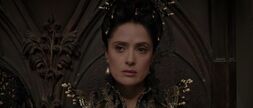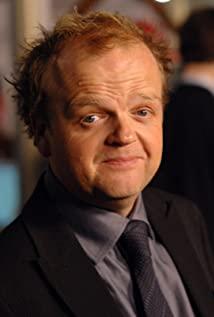The focus of fairy tales is often the interpersonal relationships in the family. This is not only because fairy tales are the earliest lessons for children to understand the world, but also because family relationships are the starting point of social relationships. Therefore, the core of the three stories seems to me to be these couples of relationships in the family: mother and child, sisters, father and daughter, these three relationships implied three husband and wife relationships; the three stories have a main thread that is desire The swelling and its resolution and breakthrough, as well as the pursuit of controlling destiny. Let's enter the specific analysis below.
The first story: mother and child
There is a view that Snow White’s stepmother symbolizes the mother herself, but humans cannot accept the evil of the biological mother. This is contrary to our traditional love and respect for mothers, so we will transfer it to a fiction in the story. On her stepmother, let her do evil and be punished instead of her mother. Even in today’s open-mindedness, the questioning of maternal love is still a taboo in various civilizations, although mothers are actually the ones who are most likely to cause harm to their children. Our culture places the role of mother in an extremely noble and irreplaceable position, and chooses to avoid or ignore the dark side of this extreme intimacy. Therefore, contemporary literary and artistic reflections on maternal love are often hidden, implicit, or without direct judgment. The difference is that in ancient fairy tales and Greek mythology, the parents’ evil came directly and fiercely and even included in destiny, so the plots of killing mothers and killing fathers often appeared.
In this story, the mother's evil was first manifested in her indifference to her father. In the film, the queen is indifferent to the king's sacrifice, and even full of disgust. This seems weird, but it looks like a lot of reality, but it's just an exaggeration. In so many families, mothers are completely child-centered after having children, and no longer pay attention to their husbands. In the movie, the widowed mother's love for her child is profound and full of possessiveness. This is not only to love her child, but also to love herself, because her child is a continuation of herself. Just like the queen said: "Although you only stayed in my stomach for a day, you have inherited my appearance." This sentence is actually absurd, because the prince is obviously not like her at all, but with the maid. The son looks exactly the same. The closeness of the two brothers is the queen's heart disease, because his son may be separated from himself because of others. This kind of mother with "Siamese syndrome" cannot tolerate any possibility of losing her child. But just as some chicken soup articles say: "Great maternal love is to let go." Only by letting go and letting the child grow can he get rid of the attachment to the mother and have a truly complete life. Obviously this "concubine can't do it."
The movie uses very poetic scenes to show the mother's weakening of the child's gradual distance-chasing in the maze, the child's avoidance and escape. Both the queen and the mother in reality have to face the fact that as the child grows older, the mother will become less and less able to catch up with the child, and the child must eventually learn to highlight the bounds of maternal love and be with oneself. Like-minded people leave together. But the queen would not let go. All the people and things that might make her son leave her are regarded by her as a fatal threat and worth fighting to death. How could some mothers in reality be like this? If the mother-in-law’s pickiness of the daughter-in-law is understandable, because it’s hard to say that the two young people are not momentarily confused when they see each other. Then the love between the two brothers in the movie is destined. Can't it be explained that they are all the same? However, the mother still refused. The queen's rejection of his daughter-in-law was not due to his low status, but because his presence reminded the queen that she was not the closest person to her son in the world. She did not hesitate to carry out the killings and to bet on her own life, but she could not accept the real separation of her son from the mother. In the last scene, the mother is transformed into a monster, which is the manifestation of the evil desire in her heart. She was so embarrassed and embarrassed that even her own son could not recognize her, so he did not hesitate to kill the mother’s evil, just like a child in reality must bravely admit and face the mother’s imperfections. , And struggle with it, in order to truly have oneself.
This story shows the dark side of being with the greatest love in the world. If a love is full of indifference and harm to others, and confinement and control of the object of love, then is this love selfless or selfish? This kind of questioning about maternal love really makes people sweat!
The second story: sisters.
Generally, the relationship between sisters is very delicate. On the one hand, we love each other and support each other. On the other hand, we will compare and compete with each other more or less. Is it the love of the parents or the material wealth of the family) that are at a disadvantage and form dependence, awe or resentment against the stronger party, and even live in the shadow of the other party. This experience of constantly being compared by others is often a distortion and harm to two people. In reality, people may be able to gradually get rid of the heart disease associated with this kind of intimate relationship through their own growth and maturity, but in this fairy tale these problems are magnified to the extreme.
Although the old sisters in the movie depend on each other for their lives, their relationship is quite morbid. The weak and incompetent sister is attached to the ambitious sister, accepting the latter's manipulation and control. It seemed that it was not family affection that really tied them together, but the loneliness, poverty and humbleness that they couldn't escape. So when the cunning sister flew up to the branch by chance, their relationship began to break. Some people say that if the younger sister keeps secrets for her sister, maybe both of them can live a good life in the palace. But how can my sister do it? In contrast, can people in reality do it? Regardless of how many IDs of the celebrities' fake faces on the Tianya community are their own sisters, it is evident from the interviews with the roommates of Sister Milk Tea's classmates. How many people in the upper ranks can be at ease when seeing someone who is on the starting line with yourself through disgraceful means? Most people will always choose to imitate or expose it. On the contrary, if everyone is not on the same starting line, the mentality will be much more balanced, and jealousy only exists among people who are close in the first place. For example, classmates, colleagues, relatives and friends, and sisters are competitors who were born at the same starting point.
The interesting thing about this fairy tale is that it does not follow the traditional fairy tale rules of good for good and evil for evil, although the bad guys here: the lecherous king and the greedy sister have received a certain degree of retribution (the former was deceived Sleeping with the old woman, the latter was eventually beaten back to her original form), but the worst ending in the film is the stupid but not necessarily unkind sister. Does this mean that in the values in the literary work of "Five Days" (the source of the fairy tale), heroes are not necessarily tame and gentle (the latest fashionable saying is "goodness with low IQ"), but those who can A person who can be cruel and control his own destiny (whether it is the prince who kills the mother in the first story, the princess who kills the husband in the last story, or even the sister who runs away in embarrassment). Therefore, compared with the older sister’s traditional evils (greed, deception, ungratefulness), the younger sister’s stupidity and blind obedience are more evil. The rules of the game and the means of deceiving the boss were distorted, but the sister's dazzling success made the sister who had originally resisted participating in the game lost her focus and fell into it. Can't get rid of her sister's curse, how miserable her sister's life is. Back to reality, those children who want to form their own independent personality must also be able to walk out of the shadow of their brothers or sisters and create their own life path.
The third story: father and daughter
If the father is the "king" in every family, then the world is full of faint kings. They take money to support those blood-sucking people or hobbies, but they don't care about their loved ones, and even push them down the fire pit. The plaything king reminded me of Wu Qilong’s father and Cai Shaofen’s mother. They both determined the fate of the child in advance because of gambling debts. The huge and deformed flea resembled the world’s various distortions and infinitely expanding pathological desires. A malignant tumor that grows in people's hearts. The heroes in fairy tales and reality are people who can accept their fate and can change their own destiny. Whether they are the princesses who are finally free or the stars who have come to nothing, they all pay a huge price for their own growth and control of their destiny.
This story has a bit of feminism. The oppression of women by men is often reflected in two points. One is power violence. Whether it comes from the patriarchy in the family or other power structures in the real society, men have the power to control the destiny of women. This is also reflected in the king, who combined patriarchy and political power, hastily and confusedly accomplished the tragedy of his daughter; the second is physical violence, which is reflected in the ravages of the princess by the tall and fierce giant; the princess in the movie is double Violent oppression has become a helpless pawn, and the two men who should have been closest to her in life have caused her the most mental and physical harm. Noble like a princess, but also from the father at home, married to the husband, even if the husband is a monster, he can only obey the rules of the man's game, and being lost by one party to the other has no dignity. The princess rejected the tragedy of women. Although her vigorous rebellion was a life of nine deaths and blood was everywhere, she finally won.
The blood here and the blood in the previous two stories together form a terrible question: Are the intimate relationships that give us life and support inherently full of risks? It can give you the support of life, but it also creates the strongest cage? Faced with the deteriorating family relationship under distorted desire, can you only choose to betray each other without looking back, and fight to the death to truly control your own destiny? This question seems more meaningful to Chinese society where collective will is stronger than individual subjectivity.
Final Chapter: Expansion and Balance of Desire
The causality that we Orientals pay attention to seems to be transformed into a philosophy of balance in Italian fairy tales. Happiness and fulfillment may be a delicate balance of desires. When it is over-expanded, it will form a kind of void, which needs new filling, and the rule of balance determines that everything cannot be made out of nothing, but can only be traded and replaced. The three stories reflect this presupposition from different angles. In the last scene of the movie, all the protagonists gather together and look at the tightrope walkers in the sky. That is one of the most beautiful manifestations of the principle of balance. It is supreme, like an oracle. At the same time, the deadline for the beautiful face of the sister has arrived, and the dream is bursting. Collapse, can only flee in a hurry in despair and panic. The balance of desire in the world is precious but rare, because human beings are very fragile in the face of temptation. Perhaps this is why the circus family, which represents balance, is destroyed so quickly and tragically.
View more about Tale of Tales reviews











